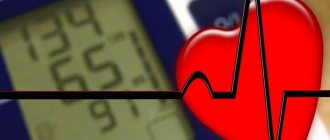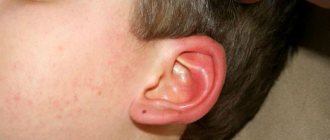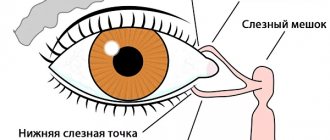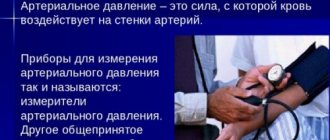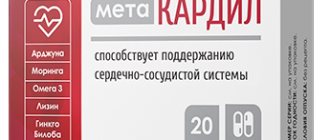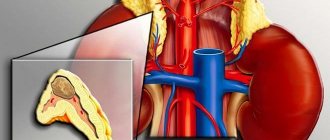Nosebleeds due to high blood pressure
Arterial hypertension is characterized by increased blood pressure and increased stress on the heart. The vascular walls change and lose their natural elasticity. Due to constant pressure, blood vessels sometimes break, which leads to bleeding.
The nasal mucosa is penetrated by many small vessels. Moreover, they are among the thinnest in the body. Therefore, with increased pressure, such vessels rupture with particular ease.
However, nosebleeds also have a positive effect - just one, but a significant one. It helps to temporarily reduce blood pressure.
Previous symptoms
In case of hypertension, characteristic symptoms indicate the possibility of nosebleeds:
- Headache;
- Dizziness;
- General weakness;
- Noise in ears.
It is necessary to pay attention to such signs and take measures to normalize the pressure. This way bleeding can be avoided.
Provoking factors
If your nose bleeds due to high blood pressure, the reasons should be looked for in the following:
- Excessive physical activity;
- The body's reaction to extreme heat;
- The influence of a stressful situation;
- Dry indoor air (relevant for winter).
All these factors contribute to increased blood pressure, causing the fragile blood vessels in the nose to burst. Often nosebleeds occur during a hypertensive crisis. In this case, the pressure rises so quickly that the vessels do not have time to adapt to the changed conditions.
Prevention methods
Most headaches and nosebleeds can be prevented by following a simple procedure. It is especially important to monitor the health of patients with chronic hypertension and bleeding disorders. They need to limit physical activity, avoid stress and nervous tension. Doctors also recommend a number of rules that will be useful even to a healthy person without any chronic diseases:
- in too hot or cold weather, use moisturizing nasal sprays; you can also buy special ointments in pharmacies;
- install equipment for air humidification in the premises - this is especially necessary when using air conditioners and heaters;
- regularly carry out wet cleaning in houses, apartments and office premises;
- give up bad habits, especially smoking, try to stay away from cigarette smoke;
- follow the instructions when using any medications, especially if their list of side effects includes bleeding (Analgin, Ibuprofen).
The Clinical Brain Institute offers individual diagnostic and treatment programs for diseases that are accompanied by headaches and nosebleeds. Our center provides comfortable conditions for each patient, including wards for inpatient treatment. Doctors are specialists of a narrow and broad profile with many years of experience in the successful treatment of diseases with similar symptoms.
Nosebleeds with low blood pressure
At low pressure, nosebleeds occur less often than at high pressure, since other mechanisms are activated. Hypertension itself occurs for various reasons. This could be regular stress, sedentary work, or heredity.
The disease does not pose an immediate threat to health. However, arterial hypotension still affects internal organs and systems, including blood vessels. It’s just that all the changes that occur are much less pronounced than with hypertension.
Thus, secondary hypotension is often detected in anemia. With this disease, the composition of the blood changes. It thins out, so nosebleeds may occur. Women often encounter this pathology during pregnancy. Their hemoglobin levels temporarily decrease, which causes nosebleeds.
In addition, people suffering from hypotension have a pronounced weather dependence. Any change in atmospheric pressure can cause nosebleeds.
What to do with high blood pressure
What to do if you bleed with high blood pressure? If after measurement it is very elevated, then it is more likely that this caused pressure on the vessels. In this case, it is necessary to give him medications that lower it.
If the tonometer indicates a hypertensive crisis, then you need to call an ambulance!
Pressure above normal in the victim indicates the progression of arterial hypertension. This condition can occur due to stress and overwork. You need to drink some cold water and take medications to normalize blood pressure. For example, valerian. motherwort, dibazol.
- Nosebleeds after alcohol: causes of nosebleeds and methods of control
In order for the blood to clot quickly, you can take calcium chloride. Better is a 5 or 10% solution, one or two teaspoons inside. The victim’s feet should be warm at this moment; for this it is recommended to place a heating pad on them.
It is strictly forbidden to place the victim on his back, or ask him to blow his nose. For light bleeding, just pinch the desired nostril and wait a little. This usually works within a few minutes.
First aid
If the nosebleed is profuse, accompanied by nausea and dizziness, then you need to call an ambulance. It will not be possible to do without the help of doctors. Otherwise, you can stop nosebleeds due to pressure at home.
To do this, you should follow the rules of first aid:
- Reassure the patient. The sight of one's own blood causes horror and real panic for many. However, stress and anxiety will only intensify the bleeding.
- Provide the victim with a calm environment and open a window to let fresh air into the room.
- If a person is dizzy, sit him on a chair and let him smell a cotton swab soaked in ammonia.
- To stop bleeding, insert a cotton swab soaked in hydrogen peroxide into the patient's nostril. If you don't have a first aid kit on hand, you can simply pinch the nasal passage above the nostril.
- Place something cold on the bridge of your nose. This method will help narrow the blood vessels.
Sometimes, to stop bleeding, it is enough to sit down with your head down. If possible, use nasal drops - they help narrow blood vessels.
You can drop lemon juice mixed with water in a 1:1 ratio into your nose. This remedy cauterizes blood vessels, therefore it is widely used in folk treatment. If you do everything correctly, a blood clot will soon form at the site of damage to the vessel. It will stop the bleeding.
How to deal with the problem?
Slow blood clotting and lack of rapid self-destruction are a feature of nasal hemorrhages in hypotensive patients.
The algorithm for stopping bleeding involves:
seat the patient. A lying position contributes to the flow of blood into the throat and stomach, and a completely vertical (standing) position causes a rapid drop in overall pressure.- reassure the patient - severe anxiety worsens the condition;
- tilt your head down. Medical professionals do not recommend tilting back, since the opportunity to assess the severity of bleeding is lost due to fluid entering the throat and stomach;
- use a tight tamponade. A gauze pad or cotton wool is folded into a thick turunda, which is moistened in a 3% solution of hydrogen peroxide and inserted into the bleeding nostril. Mechanical compression of blood vessels (with hypotension there is no tendency to autonomous spasm) and chemical reactions with peroxide contribute to the rapid stop of epistaxis;
- after stopping the acute condition, decongestants - vasoconstrictors (for example, Oxymetazoline) are often used. The drugs are contraindicated in patients with hypertension.
Throwing the head back with massive blood loss is accompanied by the risk of choking on liquid.
If these methods are ineffective, it is recommended to call an ambulance, since in the presence of serious blood pathology, specific drug therapy is required.
What should you not do if you have a nosebleed?
Since childhood, many of us have become accustomed to throwing our heads back when our nose bleeds. This cannot be done. There is a risk of squeezing the veins, namely through them the blood flows away from the head. As a result, blood pressure will only rise and the intensity of bleeding will increase.
Blowing your nose in an attempt to rid your nose of blood accumulated there is also prohibited. In this way, even more thin vessels can be torn. Doctors do not recommend lying strictly horizontally. It is better to sit on a chair until the bleeding stops. You can lie down, but then you should turn your head to the side.
If 20 minutes have passed and blood is still flowing, you should call a doctor. Self-medication in this case will no longer help. It will only worsen the patient's condition.
At what pressure can epistaxis be encountered?
The nasal membrane is designed in such a way that many capillaries and small blood vessels are intertwined in it. In the case when the capillaries located near the surface of the nasal membrane become thin and fragile, epistaxis can form from the slightest stress or injury.
Hypertensive patients have weak capillaries that cover and nourish the mucous membrane, so they very often rupture, and accordingly, blood begins to pour out. In principle, this phenomenon has its own positive side: blood pressure levels decrease and the person feels much better. However, when bleeding occurs quite often, atrophy of the mucosa can occur, which provokes various serious complications.
If blood pressure is below the norm, then the picture generally looks unusual: blood vessels are compressed, the person’s face becomes pale, and bleeding begins from the nasal cavity.
How to strengthen blood vessels?
The only way to get rid of nosebleeds permanently is to see a doctor and monitor your blood pressure. However, as an additional measure, you can strengthen blood vessels. Experienced doctors give the following recommendations:
- Regularly rinse your nose with saline solution (0.5 teaspoon of salt per 1 glass of water);
- Increase your vitamin C intake (rosehip decoction is good for this);
- Stimulate the body's defenses (hardening, moderate physical activity);
Normalizing blood pressure is the main key to defeating nosebleeds.
However, we should not forget about prevention and measures to strengthen blood vessels. If you follow your doctor's recommendations, you will not only stop bleeding from your nose, but also relieve other symptoms of hyper- and hypotension.
Is it possible to prevent this condition and how to do it?
The occurrence of bleeding against the background of low pressure is most often a sign of concomitant pathology. You can prevent the development of epistaxis:
treatment of the underlying disease (depending on the pathology - hormonal therapy, blood products, cytostatics and other drugs as prescribed by the doctor);- strengthening the vascular wall with vitamin preparations (for example, Ascorutin - a complex of vitamins C and P);
- balanced diet with sufficient levels of microelements and vitamins;
- regular physical activity, which increases the tone of the smooth muscle cells of the vascular wall;
- use humidifiers, since overdrying of the mucous membrane promotes the development of bleeding.
Nasal hemorrhages often occur in patients who take blood thinning drugs (Aspirin, Clopidogrel, Warfarin and others). To prevent the development of pathology, the use of products should be carried out only according to indications with the permission of a doctor.



